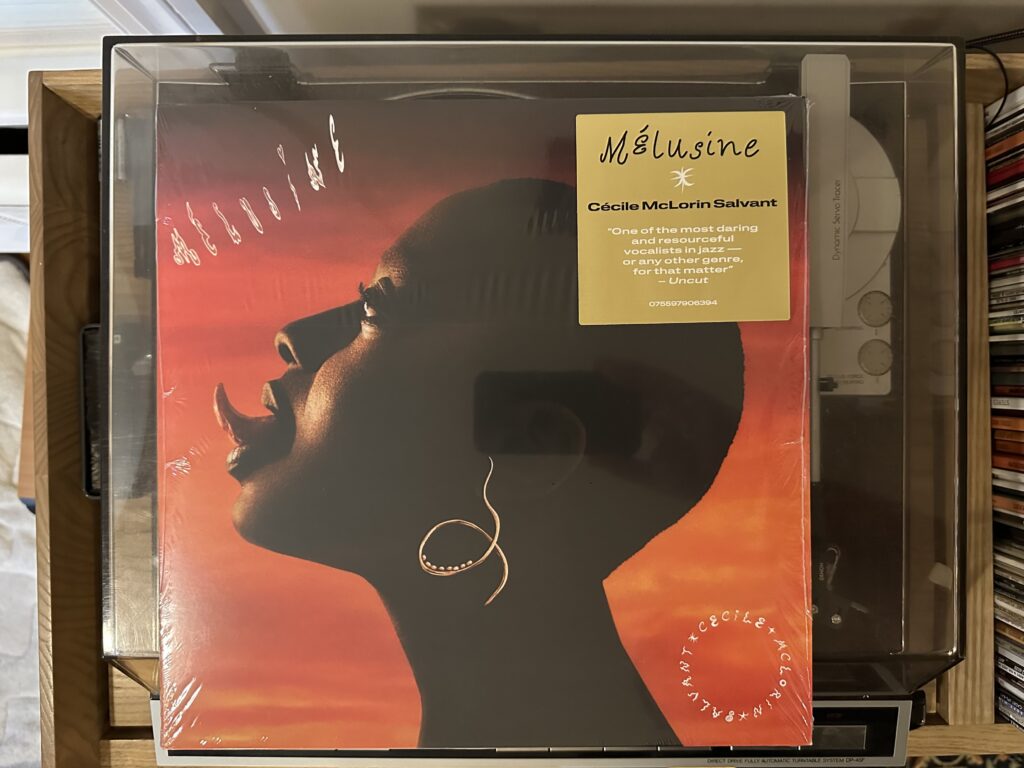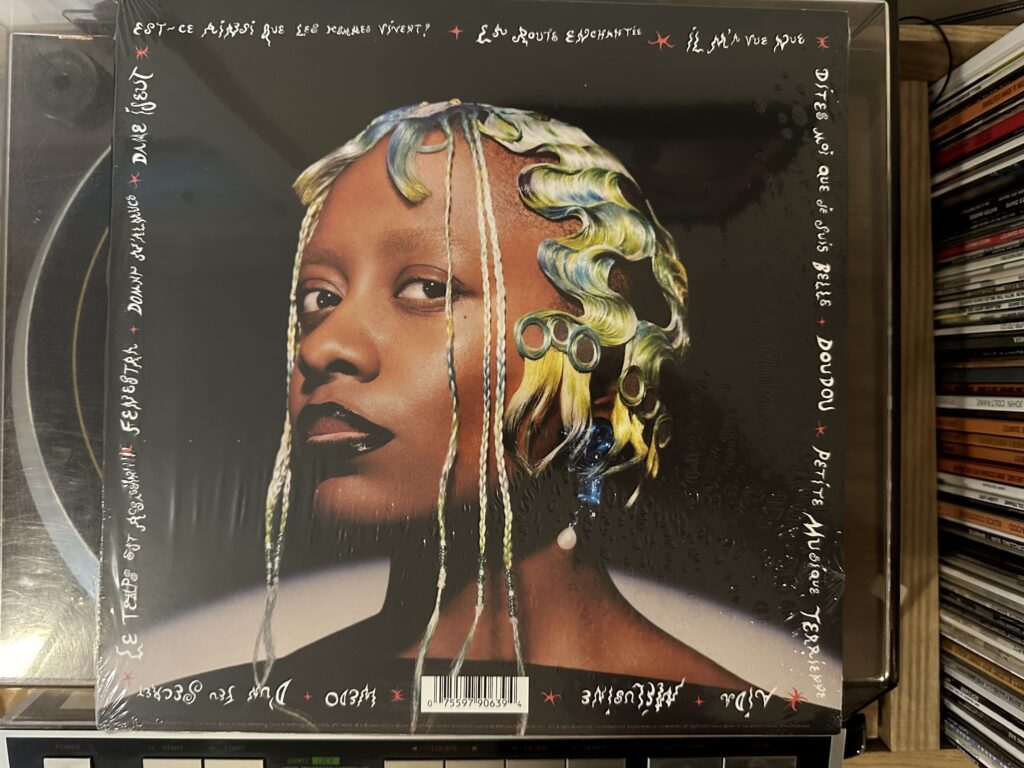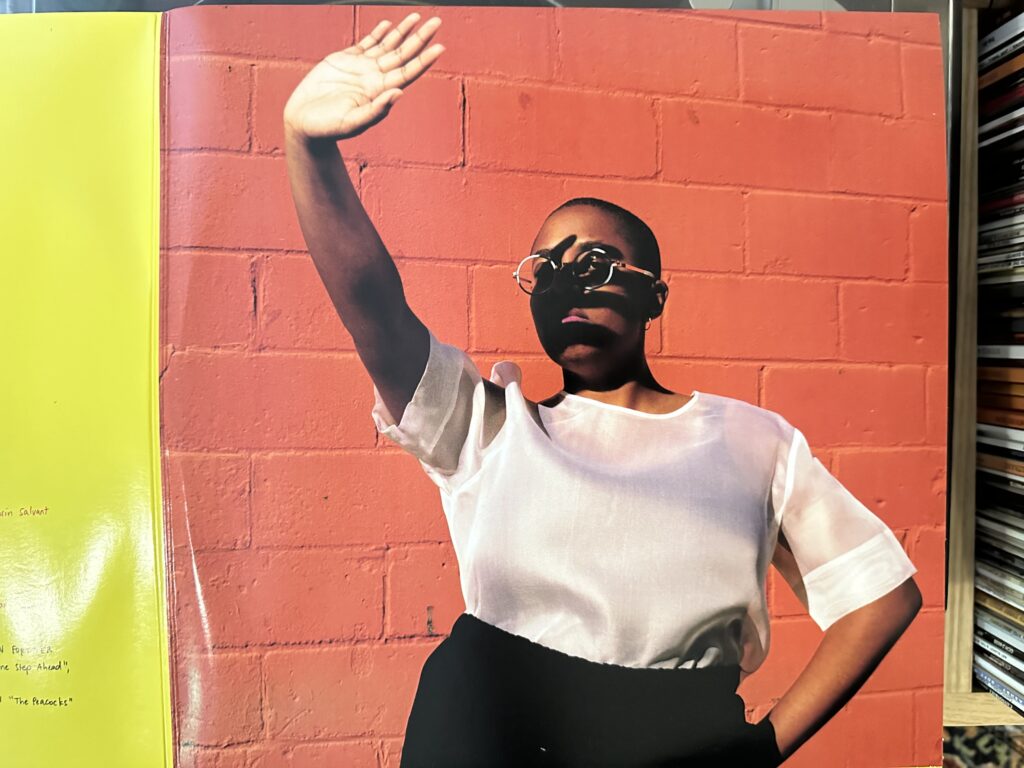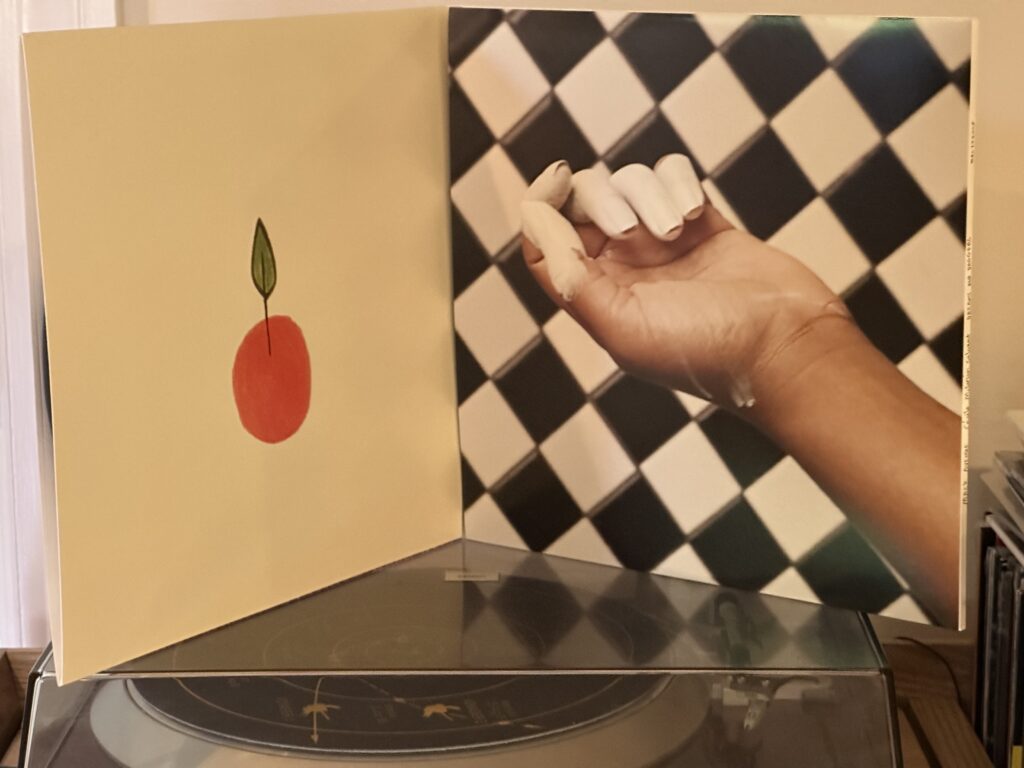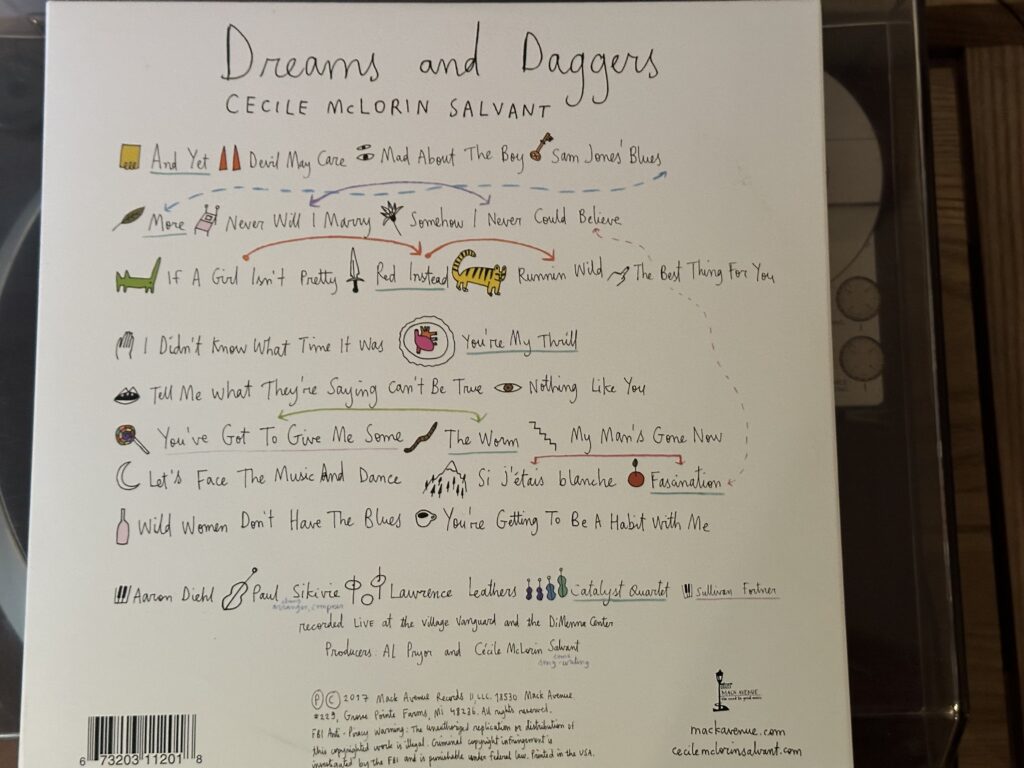
Album of the Week, December 13, 2025
In my memory it was the middle of the pandemic (it actually turns out it was January 2022), and I was doomscrolling through TikTok. And I stopped in my tracks, because here was a TikTok user who was singing jazz. And she was good. A low alto, her phrasing reminded me of Ella, and she knew classic ballads. I just scrolled through her whole timeline, and with each video I grew more convinced that she was the real thing. She seemed impossibly talented, and impossibly young.
I was a little late to the bandwagon, because her first album, Samara Joy, had come out the previous summer, and Joy (then performing as Samara McLendon) had won the Sarah Vaughan International Jazz Vocal Competition in 2019, when Christian McBride described her as a “once-in-a-generation talent.” But I got on the bandwagon before she got to the majors; she signed with Verve Records later in 2022 and released her second album, Linger Awhile, which won the 2023 Grammy Award for Best Jazz Vocal Album and won her a Best New Artist award (beating out Wet Leg, among others). And that winter she released this EP, featuring guest Sullivan Fortner (whom we’ve seen accompanying Cécile McLorin Salvant) on piano and Hammond organ, drummers Kenny Washington and Charles Haynes, bassists David Wong and Eric Wheeler, pianist Shedrick Mitchell, and Antonio McLendon.
“Warm in December” is a lesser-known composition by Bob Russell, better known for co-writing “Concerto for Cootie” with Duke Ellington as well as lyrics to dozens of tunes including his last hit “He Ain’t Heavy, He’s My Brother.” With Sullivan Fortner, Kenny Washington and David Wong backing Samara Joy on this performance, a strong argument is made that the song ought to enter the holiday repertoire. A gentle out-of-tempo introduction by Joy and Fortner is followed by a swinging verse with Washington and Wong in cheeky form. Samara Joy’s vocals are at once intimate, requiring the listener to lean in, and knowingly smiling in the way of the best of Ella’s performances. Sullivan Fortner again proves he is the best living accompanist of great jazz vocalists with his sensitive introduction and jubilant solo.
“Twinkle Twinkle Little Me,” co-written by Ron Miller and William O’Malley and originally performed by the Supremes in 1965 and Stevie Wonder in 1967, is here performed by Samara Joy and Sullivan Fortner as an aching ballad. Joy’s vocal control is marvelous, with a single high note underscoring the promise “If you give unselfishly/I’ll always shine for you.” It’s no wonder this performance won Joy and Fortner the Grammy for Best Jazz Vocal Performance.
“The Christmas Song” is as warm a performance of the Mel Tormé/Bob Wells classic as you’re likely to find. Joy’s vocal style here demonstrates several signatures of her style, including her quiet volume, careful use of glissando, masterful control of her low range, and phrasing behind the beat in the best possible way, to say nothing of her sense for the finely timed key change at the very end. It also offers an opportunity to hear the steady, forthright sensibility that young bassist David Wong brings to the session; nothing extraneous, just forward motion with his deeply resonant notes.
“Have Yourself a Merry Little Christmas” is the last of the numbers featuring Washington and Wong, here joined by Italian guitarist Pasquale Grasso, who collaborated with Joy on her first two albums. He proves every inch as sensitive an accompanist as Fortner, easily following her shift from a slow waltz time into a swinging double-time across the song’s bridge. On the last verse, as she sings “Until then, we’ll have to muddle through somehow,” she imperceptibly crescendoes to her loudest forte of all the small-combo numbers, then finishes on a stunning barely-sung high note sustained with impossible clarity.
I am not the world’s biggest fan of “O Holy Night”; I find most performances overwrought and triumphalist in a way that feels inappropriate for the hushed miracle of Christmas Eve. In that regard, Joy’s choice to perform here with her father Antonio McLendon (who brings a gospel richness to their harmonies) and her gospel-singing legend grandfather (Goldwire McLendon co-founded the Philadelphia gospel group the Savettes) seems inspired. The outro, with its modal choir building slowly to a climax and a rare Samara Joy high note, might be my favorite part of this Christmas album. She finishes the EP with another collaboration with Antonio, “The Christmas Song (Live Duet),” with Charles Haynes, Eric Wheeler and Shedrick Mitchell backing, which is lovely for many reasons, including father and daughter shouting each other out during the applause at the song’s end.

Not everything on A Joyful Holiday is an instant Christmas classic, but enough of it is great that it’s well worth seeking out. Also: great1 new Christmas albums from young artists are rare enough that I recommend grabbing them when you find them. And going to hear them perform, as well. (You can imagine my dismay when I was unable to perform this year’s Boston Pops concert for corporate sponsors, only to learn that the guest artist was none other than Ms. Samara Joy.)
You can listen to this week’s album here:
BONUS: Here’s a version of Joy with Antonio McLendon and pianist Luther Allison performing “O Holy Night” live for Vevo:
BONUS BONUS: A slightly funkier live version of “Twinkle Twinkle Little Me” from Joy’s YouTube channel still carries the intimacy of the recorded version:
- Mediocre ones, on the other hand, are a dime a dozen. ↩︎

